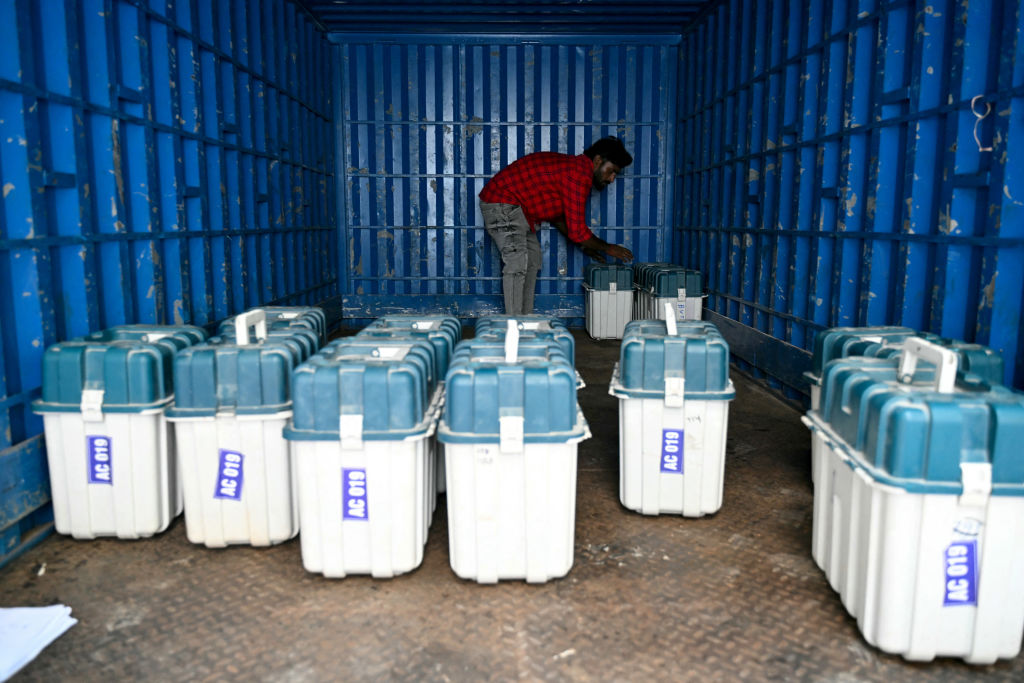- Sunday, April 13, 2025
Many losing candidates of the opposition Shiv Sena (UBT) pointed fingers at the functioning of the Electronic Voting Machines during their interaction with party head Uddhav Thackeray

By: Shajil Kumar
THE MAHA VIKAS AGHADI candidates who faced defeat in the recent Maharashtra assembly polls have decided to seek verification of the EVM-Voter Verifiable Paper Audit Trails (VVPATs) units in their segments, a leader of the opposition alliance said.
Many losing candidates of the opposition Shiv Sena (UBT) pointed fingers at the functioning of the Electronic Voting Machines (EVMs) during their interaction with party head Uddhav Thackeray on Tuesday.
Thackeray took stock of the lacklustre performance of his party at a meeting held at his residence in Mumbai.
The poll verdict last week saw the Mahayuti coalition, comprising the Shiv Sena, BJP, and NCP, retaining power with a massive mandate, pushing the Maha Vikas Aghadi (MVA) to margins.
The Mahayuti won 230 seats and MVA only 46 in the 288-member House.
The Thackeray-led Sena (UBT) emerged as the largest party in the opposition camp by winning 20 seats, followed by Congress which bagged 16 constituencies, while the NCP (Sharadchandra Pawar) sits at the bottom with a tally of 10 seats.
Talking to PTI on Tuesday, Congress leader Arif Naseem Khan, who lost the election from Chandivali assembly constituency in Mumbai, said he held a discussion with Thackeray, who also said he has got complaints from his party workers that EVMs could have been tampered.
“We are getting complaints from different parts of the state expressing doubts over the results. In a democracy, complaints need to be verified and many of us, including myself, (who faced defeat) are in the process of applying for the verification,” Khan said.
As per the Supreme Court’s judgement on April 26 this year, the burnt memory/microcontroller in 5 per cent of the EVMs – the control unit, ballot unit and the VVPAT – per assembly constituency shall be checked and verified by a team of engineers from manufacturers of the EVMs, after the announcement of results, for any tampering or modification, he said.
A written request for this has to be made by candidates who are in the second or third position behind the highest polled candidate.
Such a request has to be made within seven days of declaration of the result, Khan said.
A candidate making the request will have to pay the expenses of Rs 41,000 which will be refunded in case the machine is found to be tampered with, he said.
The microcontroller is a one-time programmable chip embedded into the three units of EVM-Ballot Unit, Control Unit and the VVPAT – at the time of manufacturing, as per the SC.
A Sena (UBT) MLA from Mumbai has claimed there were discrepancies between the votes polled and the votes counted in the EVMs.
“Almost all candidates raised doubts over the EVMs,” the legislator said. (PTI)